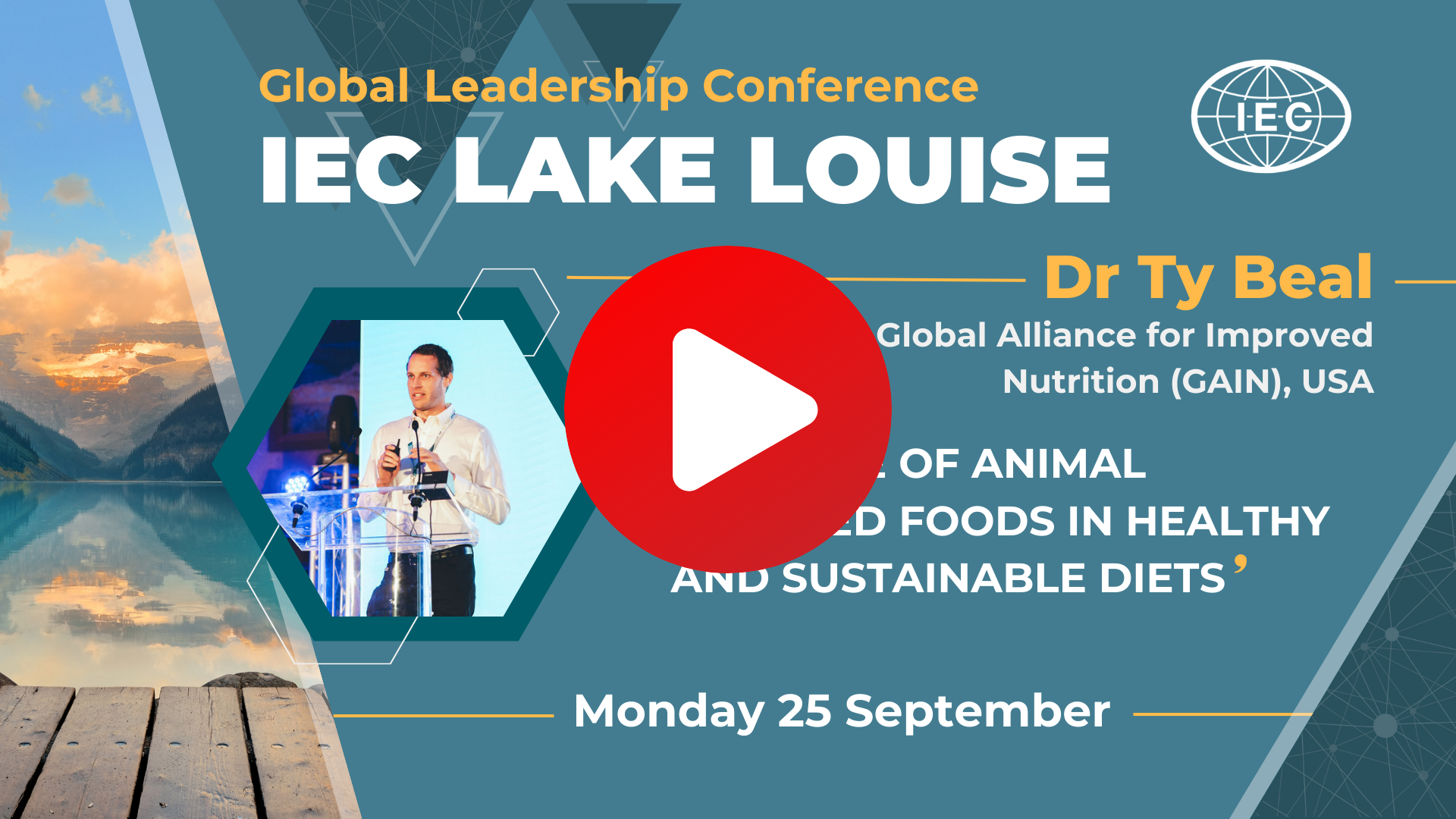The Role of Animal Source Foods in Healthy and Sustainable Diets
6 December 2023
 Dr Ty Beal, Research Advisor at the Global Alliance for Improved Nutrition (GAIN), provided expert commentary on the role animal source foods can play in combatting the global issues of malnutrition and environmental sustainability.
Dr Ty Beal, Research Advisor at the Global Alliance for Improved Nutrition (GAIN), provided expert commentary on the role animal source foods can play in combatting the global issues of malnutrition and environmental sustainability.
Speaking at the recent IEC Global Leadership Conference in Lake Louise, Dr Beal highlighted the need for improved nutrition across all countries, illustrating how animal source foods, such as eggs, can and should be part of healthy and sustainable diets globally.
The prevalent problem of malnutrition
Dr Beal began by providing an overview of the state of malnutrition worldwide, incorporating undernutrition and overweight/obesity. “We see it’s widespread in all countries,” he explained. “No country is without a high burden of both of these issues. I think that’s important to highlight – we have malnutrition across the world.”
As well as illustrating levels of stunting and obesity, Dr Beal explored the prevalence of common micronutrient deficiencies across regions. While 9 out of 10 women are lacking in essential nutrients in many lower income countries, such as India and Cameroon, there is also prevalence in high income countries. For example, 1 in 2 women in the UK, and 1 in 3 in the US are lacking in at least one micronutrient.
Furthermore, Dr Beal emphasised the shortage of protein in the food supply, especially in lower income countries: “A billion people consume inadequate protein.”
Why we need animal source foods
Next, the expert speaker reviewed the consumption of animal source foods worldwide, identifying South Asia & sub-Saharan Africa as areas with very low intake. As such, these regions showed an increased risk for undernutrition, especially in early childhood; resulting in stunting, which can have “life-long, lasting effects”.
Dr Beal also recognised the importance of recent efforts to encourage more sustainable, healthy diets, but explained that certain popular proposed diets, such as EAT-Lancet, possess inadequacies when it comes to essential nutrition: “Once you get this very highly plant-based diet, you start to see the increased risk for deficiencies of certain nutrients.”
With this in mind, Dr Beal explored the unique nutritional contribution of animal source foods, including eggs, and how they can help combat malnutrition worldwide. “Animal source foods are rich in nutrients that are often lacking, for example iron, zinc, vitamin B12 and choline,” he explained.
In addition, he highlighted the importance of bioavailability: “If you have the same quantity of these nutrients in plant sources versus animal source foods, it’s not actually providing the same amount of absorbable nutrient.” For example, Dr Beal explained that vitamin A is around 12 times more bioavailable when found in animal sources, than when derived from plant source foods.
Looking specifically at eggs, the speaker likened them to a multi-vitamin, since they have “a moderate amount of a lot of nutrients”. Furthermore, he stated that while one egg is only 4% of the energy requirements for the average adult, the daily value is much higher than 4% for many of the nutrients, showcasing their nutrient-density.
Planet-positive production
Having established the role of animal source foods in healthy diets, Dr Beal went on to explore their impact on sustainability. He identified key areas of discussion around food production, including land use, water consumption and biodiversity.
While recognising challenges in these areas, he argued that sustainability can be achieved with the right production methods. “When produced at the appropriate scale, and in accordance with local ecosystems in the right context, and using the best practices, we really can have sustainable production,” Dr Beal concluded. “So we can have healthy diets that include animal source foods and plant source foods in the right amounts, produced in the right ways.”
 Hear more from the expert
Hear more from the expert
Watch Dr Ty Beal’s full presentation to gain direct insight into the role animal source foods can play in combatting malnutrition and sustainability issues (available to IEC members only).
Watch the full presentation now